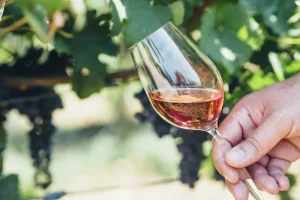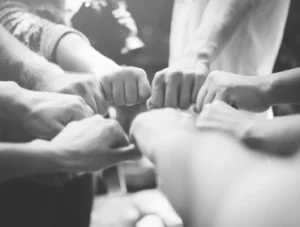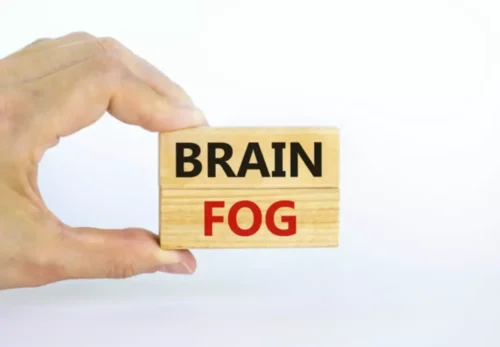Relationships in Recovery: Balancing Personal and Partner Needs
5 min read
There is a large body of research showing that addiction can have negative impacts on relationships, and I have never met someone in recovery who was unaware that addiction hurts loved ones. Substance abuse and addiction can lead to misunderstandings, poor communication, https://ecosoberhouse.com/ personality changes, social detachment, emotional numbing, and dishonesty. These changes can shatter trust and create a lot of negative emotional experiences in your relationships. Not only are relationships important, the health of those relationships also matters.
Understanding the Personality Traits of Children of Addicted and Alcoholic Parents

Ultimately, disclosing your recovery status to others is a very personal decision and the timing of it depends on a variety of factors. That being said, your most important priority needs to be protecting your recovery. This means taking care to not put yourself in situations where your recovery is likely to be at risk. Whether you’ve been in recovery previously or this is your first attempt, why should they believe you now? How many times have you told them that this time things will be different? The more often this happens, the harder it is for the important people in your life to trust that this time really will be different.
- Having a healthy relationship with yourself will largely determine how much you enjoy your life.
- Relationships also benefit from healthy communication skills, validation, boundaries, and honesty—all of which are important for addiction recovery.
- Occasionally, such questions may be asked provocatively, questioning or even testing your commitment to recovery.
- A therapist can help you understand the underlying causes of your addiction, identify triggers, and develop strategies to maintain sobriety.
Healthy Relationships in Recovery: Do’s and Don’ts

The camaraderie and understanding within these groups can lead to lasting friendships grounded in mutual support and shared experiences. Making amends requires actions that demonstrate your commitment to change and to rectify past mistakes. This can include making relationships in recovery restitution for financial issues, committing to therapy or family counseling, and showing through your daily actions that you are living your apology. It’s about proving that you are consistently taking steps to ensure that the hurtful behaviors do not recur.
- As you work through your recovery process, creating new connections that support and nurture your sobriety is essential.
- These groups can be safe spaces to bond with a like-minded peer group.
- Unfortunately, people with addiction are inclined to isolate, effectively cutting themselves off from the health-enhancing effects of social and emotional support.
Treatment Facilities

Moreover, codependent behavior can involve attempting to control or “fix” the addict’s problems. Loved ones may become excessively involved in the addict’s life, micromanaging their decisions and choices to keep them away from their addictive behaviors. This controlling behavior often comes from a place of concern, but it can lead to feelings of resentment and frustration on both sides. Codependent individuals may find their self-esteem and self-worth closely tied to the well-being of the addicted person. They may sacrifice their own needs, desires, and boundaries to prioritize the needs of the addict. Many people in this situation continuously put the addict’s needs above their own, often to the detriment of their emotional and physical well-being.
There are different types of unhealthy relationships directly related to addiction, like codependent/enabling relationships. Codependent relationships have positive intention to help loved ones in need; however, they may not have boundaries that allow individuals sufficient independence to grow. It is dysfunctional as it enables individuals with substance use disorders, careless life decisions and toxic habits. Most people experience deep regret, guilt, and shame related to the harm their use of alcohol and other drugs has caused to the people they care about.
Relationships Give Our Life Substance and Meaning
They might even feel guilty for setting boundaries or making tough decisions, fearing they will worsen the situation. In extreme cases, addiction can lead to bankruptcy because of the high treatment costs, medical bills related to health problems from drug use, or job loss due to addiction-related issues. People struggling with addiction spend a lot of money on drugs, and the costs can add up quickly.

With improved communication skills, individuals can express their needs, thoughts, and concerns more effectively, fostering healthier and more fulfilling relationships. These relationships serve as a solid foundation for personal growth and ongoing support in maintaining long-term recovery. This process allows individuals to take responsibility for their actions, heal past wounds, and rebuild damaged relationships.
When you want to build a relationship after rehab, you should always look for the positive traits in people that indicate a healthy relationship. They should be stable and build on mutual respect, trust, and support. Like developing a healthy relationship with others, becoming your own best friend is a process that takes time and dedication. As you work the 12 Steps of recovery, you will undergo a transformational process that will teach you how to accept yourself – flaws and all. When you have a healthy relationship with yourself, you are more likely to have healthy relationships with other people. If you are abusive, unkind, disrespectful, or destructive towards yourself, you are more likely to accept this kind of toxic behavior from others.
Practice Good Communication Skills
Trust is one of the most common challenges couples face during substance use recovery. Addiction can damage trust between partners, making it difficult to rebuild. Restoring trust with loved ones post-rehab requires patience and understanding that the process takes time. Both parties need to allow for natural forgiveness and rebuilding of trust through communication and establishing bonds with each other.
The Importance of Establishing Healthy Relationships
People who are abusing drugs or alcohol are often unreliable, break promises, and neglect responsibilities. Don’t become angry or frustrated if your loved one is hesitant to trust you. In some cases, the damage may be too severe to fix, and you may need to learn to accept that. Chronic drug and alcohol abuse can damage relationships, and lead to severe emotional pain and unhealthy coping skills, such as enabling. Healthy relationships allow for people to establish boundaries, so everyone feels safe.